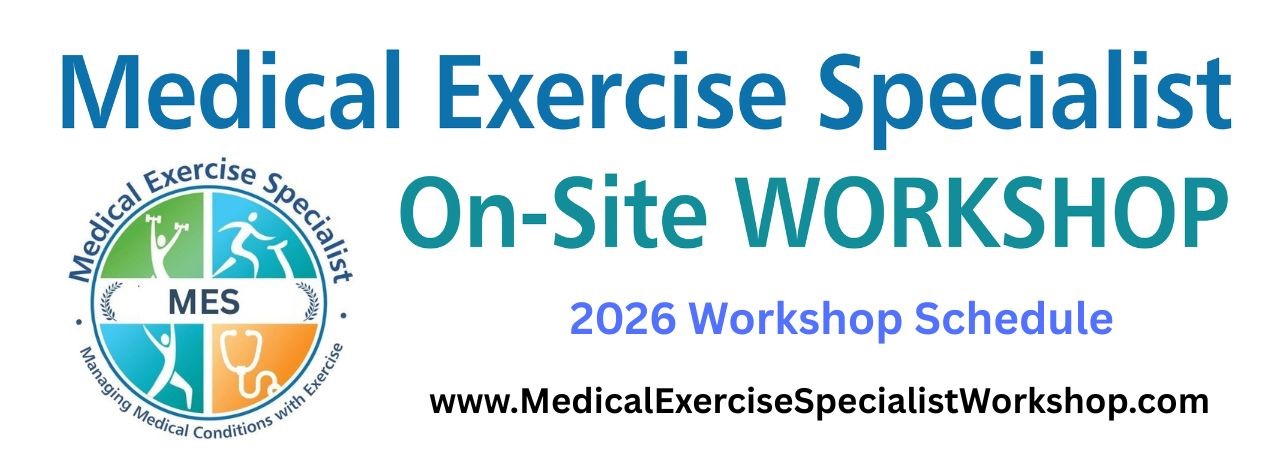What It Means to Be Reimbursement-Ready—and How It Elevated Sarah’s Practice
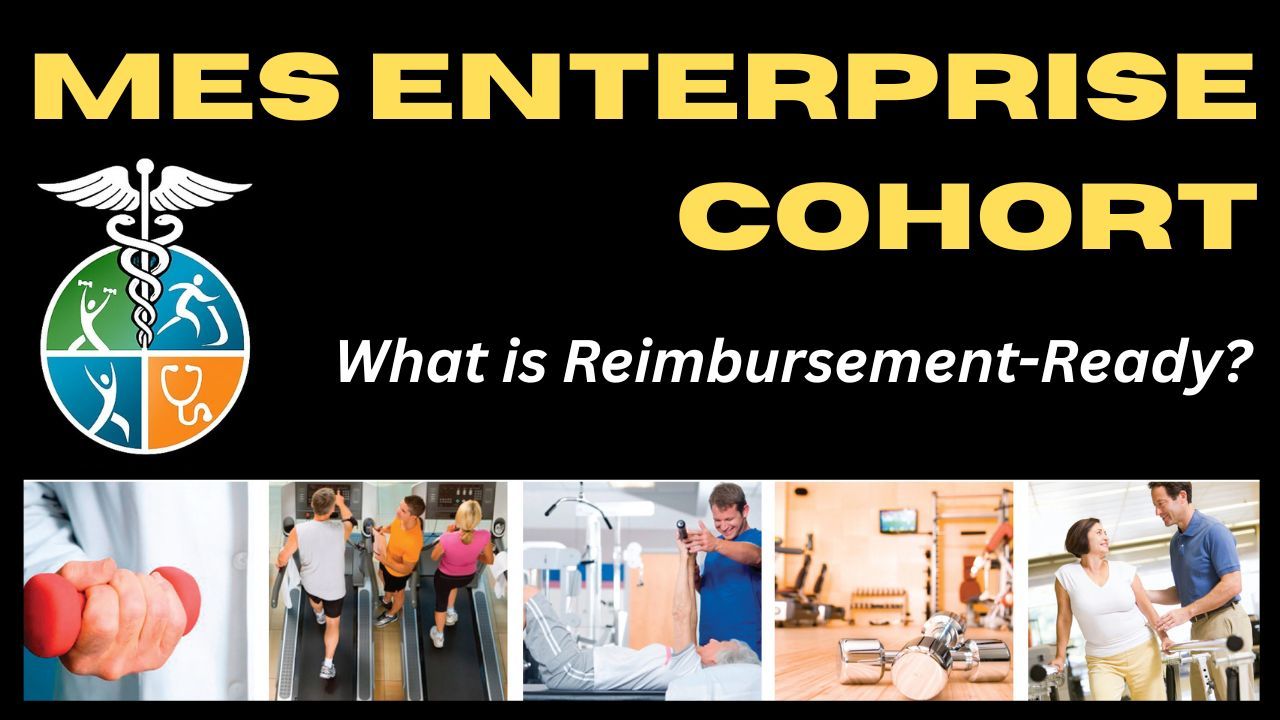
Reimbursement-ready does not mean billing insurance.
It means your practice has the documentation, language, and systems to support a client who chooses to pursue reimbursement.
Before the MES Enterprise Cohort, Sarah avoided these conversations.
After the cohort, she handled them with confidence.
What “Reimbursement-Ready” Means for a MedExPRO
A reimbursement-ready practice has:
- A proper medical referral
- Written by a licensed provider
- Specifies Medical Exercise Training or Functional Conditioning
- Includes a diagnosis and ICD-10 code
- Consistent session documentation
- Date, duration, and service description
- Functional focus tied to the diagnosis
- Objective indicators of progress
- Client-ready documentation
- Session summaries
- Progress reports
- Clear service descriptions appropriate for submission
Reimbursement-ready practices do not promise payment.
They provide professional clarity.
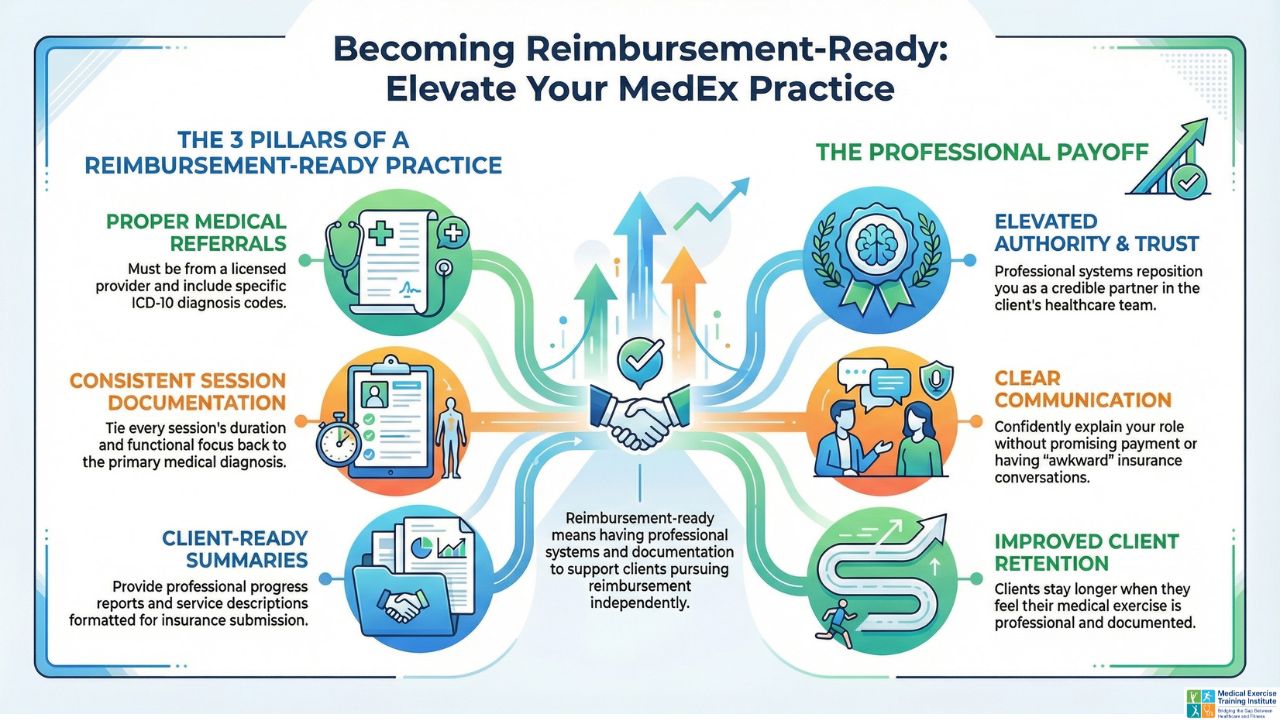
Why Reimbursement-Ready Changed Sarah’s Practice
Once Sarah became reimb...
Medical Exercise Professionals Are Expected to Have These Skills...Do You??
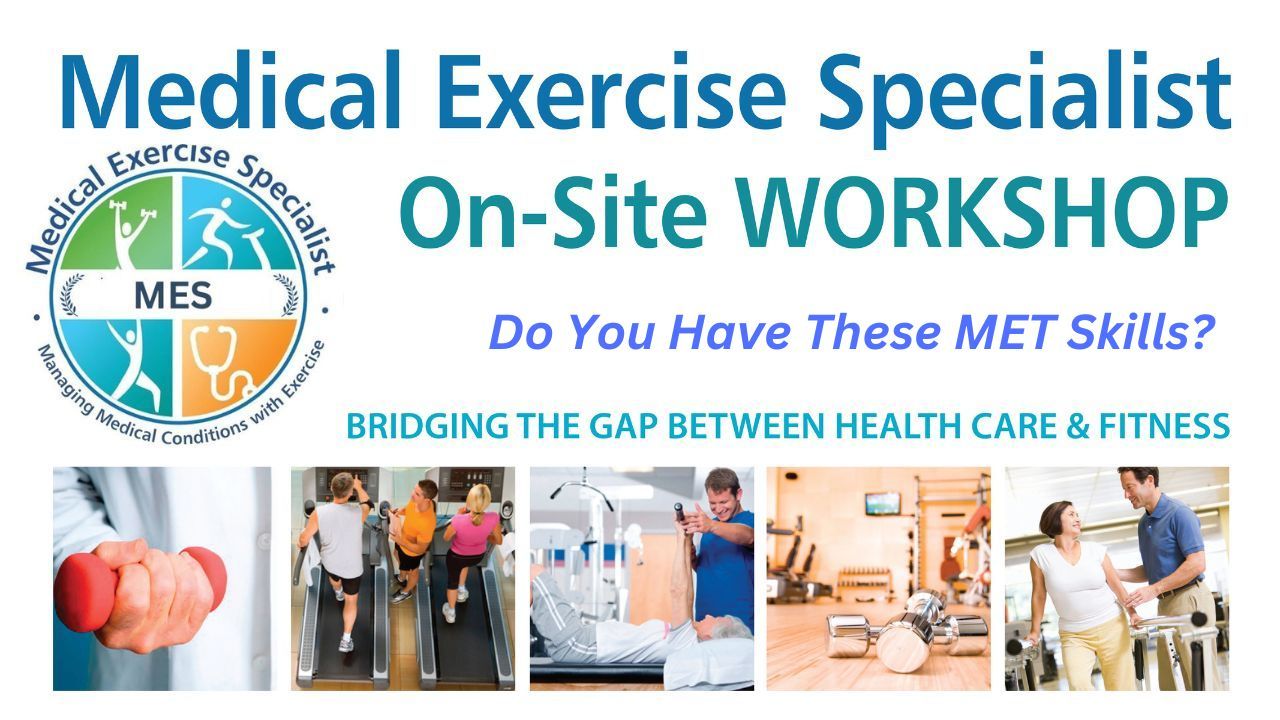
Most fitness and post-rehab professionals believe they are “working with medical clients.”
Very few can document the skills required to do so safely, ethically, and professionally.
That gap is exactly why the Medical Exercise Specialist (MES) On-Site Workshop exists.
The Reality of Medical Exercise Practice
Medical exercise is not defined by enthusiasm, experience, or certifications alone. It is defined by demonstrable competencies—the kind medical professionals assume you already possess when they trust you with a referred client.
The Medical Exercise Skills Checklist outlines more than 50 core competencies that a Medical Exercise Professional should be able to perform independently, confidently, and consistently. These are not “advanced” skills. They are baseline expectations in medical environments. Yet most professionals have never been formally trained in many of them.
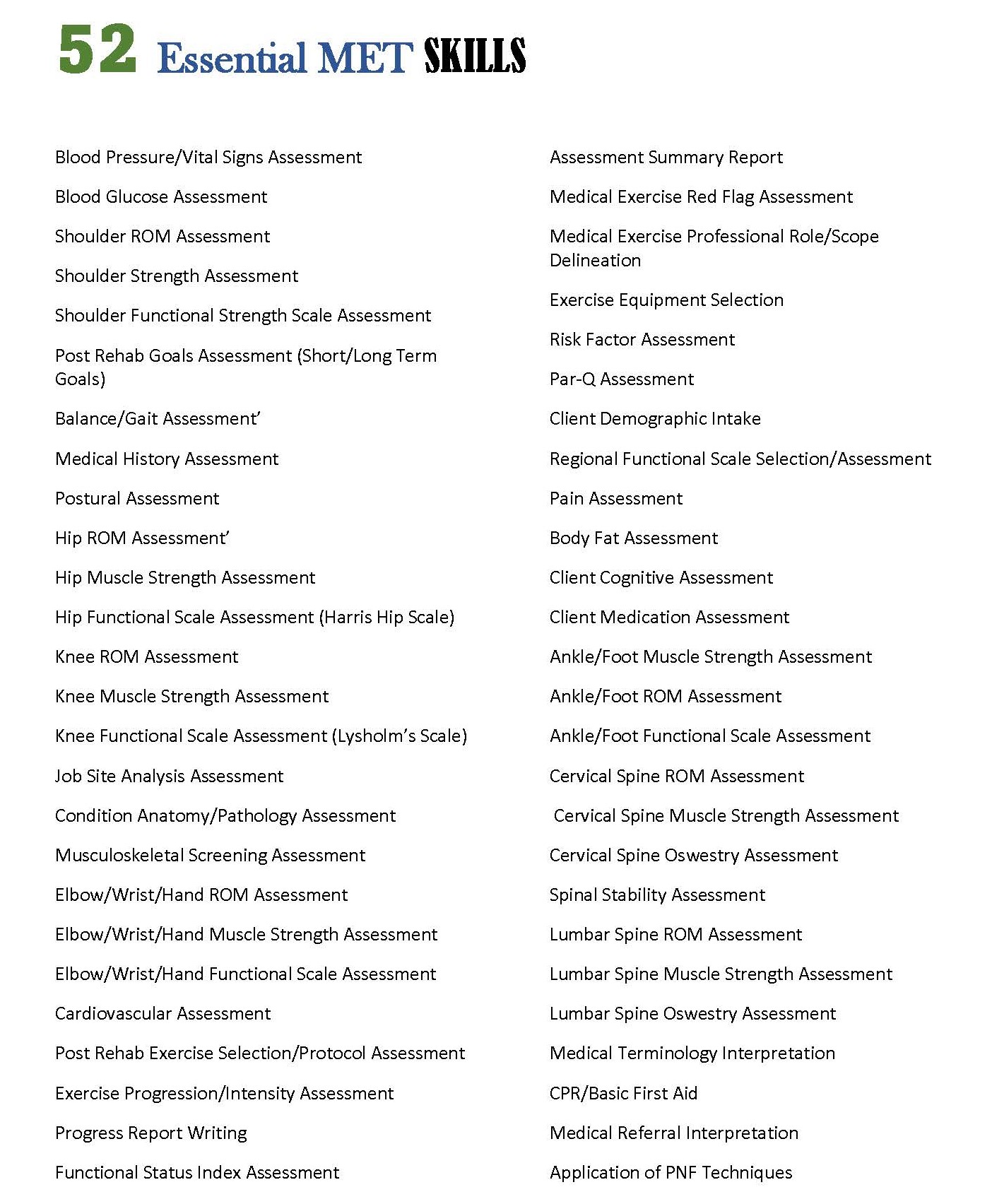
What the Skills Checklist Really Reveals
When professionals review this checklist honestly, a pattern em...
What is Referral-Ready? How Can I Get There?
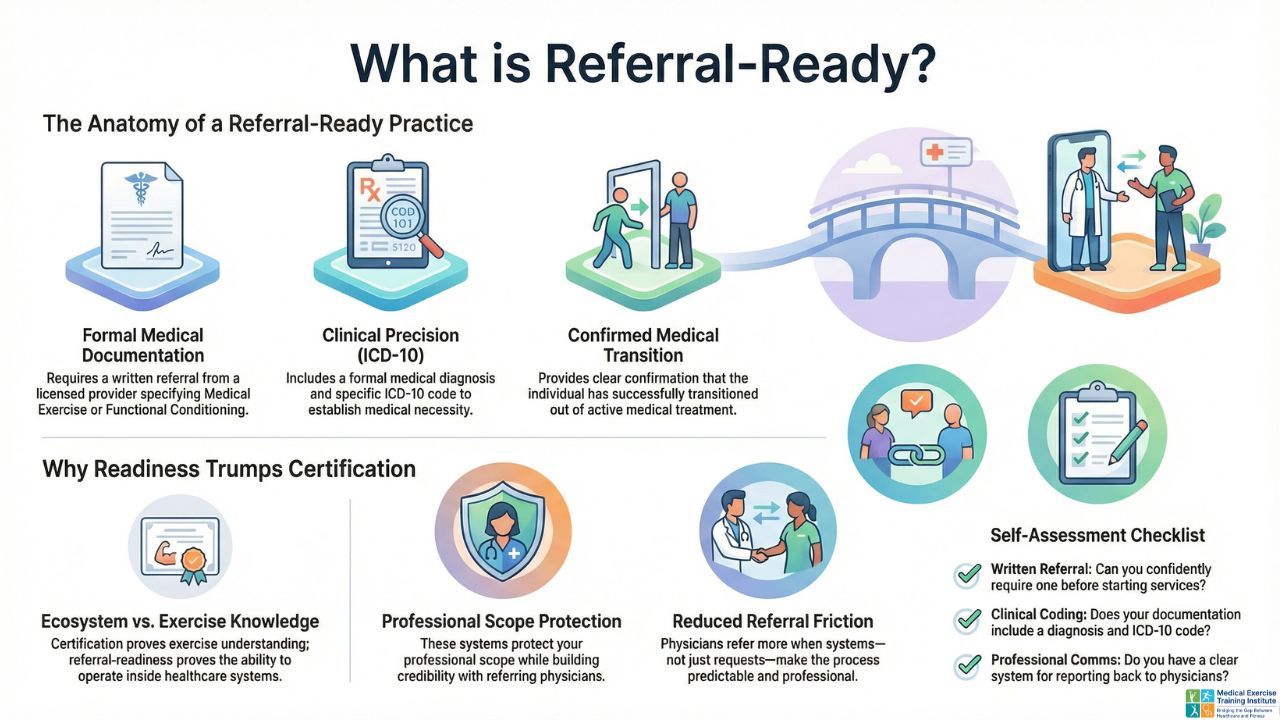
What is Referral-Ready?
Being referral-ready is not a mindset.
It’s not confidence.
And it’s not hoping a doctor notices your work.
Referral-ready is a practice standard.
A Medical Exercise practice is referral-ready when it can professionally receive, manage, and respond to a written medical referral—without hesitation, confusion, or scope risk.
Sarah didn’t fully understand this until she entered the MES Enterprise Cohort.
Once she did, everything changed.
What “Referral-Ready” Actually Means for a MedExPRO
A referral-ready practice requires all of the following:
- A written referral from a licensed medical provider
- Referral language specifying Medical Exercise Training or Functional Conditioning
- A medical diagnosis with an ICD-10 code
- Clear confirmation that the individual has transitioned out of medical treatment
This referral establishes:
- Medical necessity
- Scope protection
- Professional clarity
- Trust with the referring provider
Before the cohort, Sarah accept...
MET 101 eBook Tip 47: Managing Blood Pressure and Blood Glucose in MET
One of the most common—and unnecessary—sources of anxiety for Medical Exercise Professionals is knowing when it is safe to exercise a client with hypertension or diabetes. This uncertainty often leads to hesitation, avoidance, or overly conservative programming that limits outcomes.
Here’s the truth: medical providers expect and respect these conversations.
Physicians would much rather answer a clear, professional question about exercise parameters than discover later that decisions were made without guidance. Reaching out to clarify acceptable blood pressure or blood glucose ranges does not signal inexperience—it demonstrates professionalism, risk awareness, and respect for scope.
Every MedExPRO should begin a new client relationship by:
- Obtaining a written referral
- Confirming the diagnosis and ICD-10 code
- Requesting individualized exercise parameters for blood pressure and/or blood glucose
That said, there are general safety thresholds every MedExPRO must understand and be...
3 Game-Changers That Only Happen in the MES Onsite Workshop
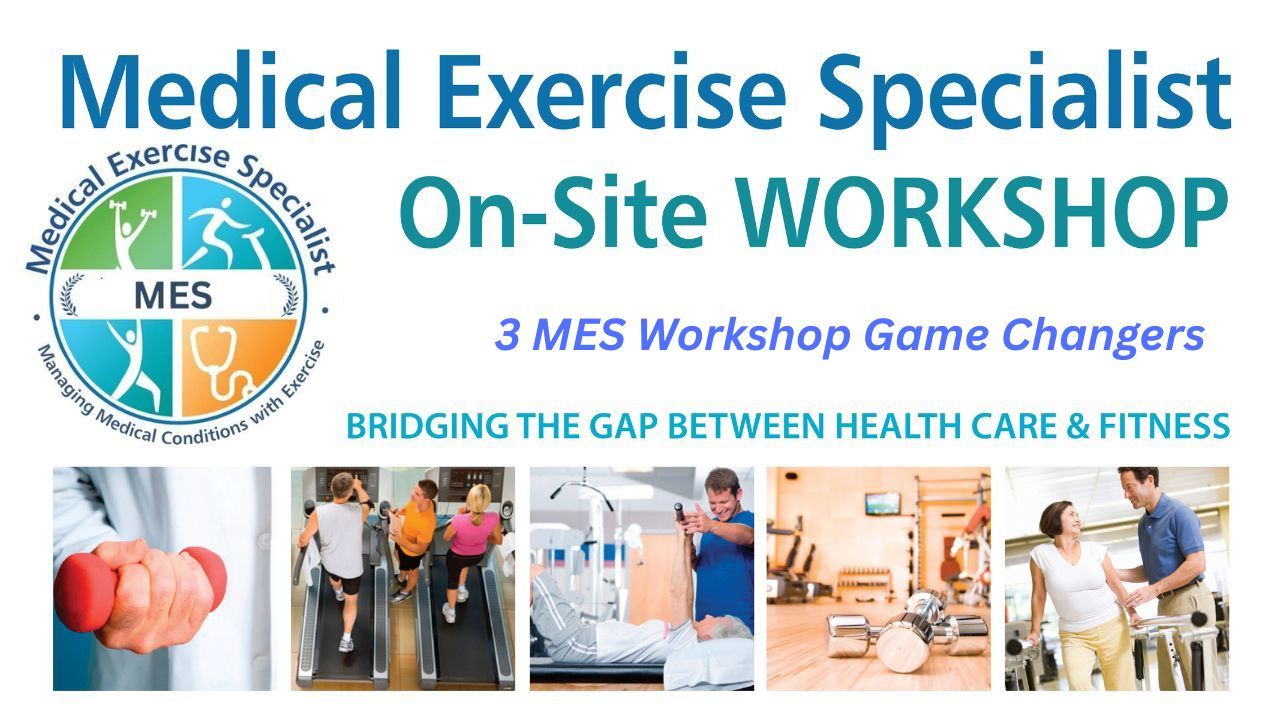
Most continuing education makes you know more.
The MES Onsite Workshop does something far more important—it permanently changes how you think, how you see clients, and how you operate as a Medical Exercise Professional.
After decades of training MedExPROs across six continents, three game-changers stand out. These are not abstract ideas. These are irreversible shifts that participants repeatedly describe as the moment they stopped feeling like “advanced trainers” and started operating as true medical exercise professionals.
Game-Changer #1: You Learn to See the Client Through a Medical Lens—Not a Fitness One
In the onsite workshop, MedExPROs stop looking at clients as collections of exercises and start seeing them as functional systems influenced by pathology, history, and medical context.
This is where:
- Anatomy stops being academic
- Pathology stops being intimidating
- Exercise selection becomes intentional, not habitual
You don’t just learn what to do—you learn why one choi...
Medical Exercise Specialist Workshop 2026 Schedule - 2-Day Intensive
SCROLL TO BOTTOM TO REGISTER
| 🎯 Only 12 Seats | 🚨 2026 Workshop Schedule
⏱️ Stop Guessing. Start Bridging the Gap Between Healthcare & Fitness.
The Medical Exercise Specialist Workshop gives you the skills, systems, and credibility to manage medical clients, attract physician referrals, and grow a sustainable practice.
The Challenges Every MedExPRO Feels
If you’ve been in the fitness or rehab field for any length of time, you’ve probably felt these frustrations:
❌ You’re confident training healthy clients… but nervous with complex cases. When a client walks in with diabetes, osteoarthritis, or post-surgery clearance, do you find yourself second-guessing your program design?
⚠️ You’ve taken certifications… but still don’t have referrals. Too many MedExPROs think another certification will open doors — but doctors don’t care about your wall of certificates. They care about results, documentation, and professionalism.
😖 You want physician referrals… but don’t know what to say. Do y...
From Certified to Referred: How One MES Built a Medical Exercise Practice Physicians Trust
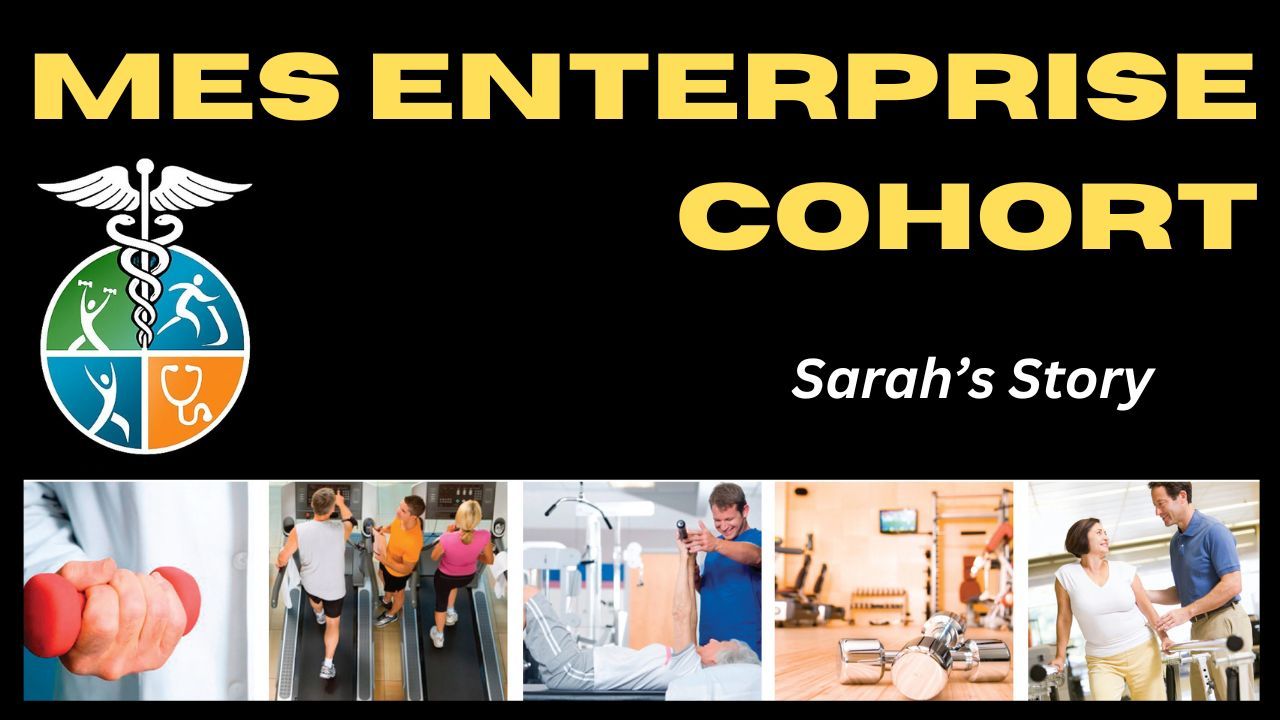
Dear MedExPRO or MedFitPRO,
Let me tell you a story that may feel uncomfortably familiar.
Sarah was a highly competent personal trainer with years of experience. Smart. Motivated. Caring. She had taken continuing education seriously and eventually enrolled in the Medical Exercise Specialist Workshop, earning her MES certification because she wanted more than general fitness clients.
She wanted to work with medical referrals.
She wanted professional credibility.
She wanted to build something that felt legitimate, ethical, and sustainable.
But after certification, reality hit.
Despite the new credential, Sarah defaulted back to what she knew:
- Personal training language
- Fitness-style assessments
- Informal progress tracking
- Verbal updates instead of documentation
She wanted to build a medical exercise practice—but she was still thinking like a trainer.
And she knew it.
She hesitated to approach physicians.
She felt unsure what to say to physical therapists.
She worried she’d...
7 Non-Negotiables Every Referral-Ready, Reimbursement-Ready MedExPRO Must Master in 2026
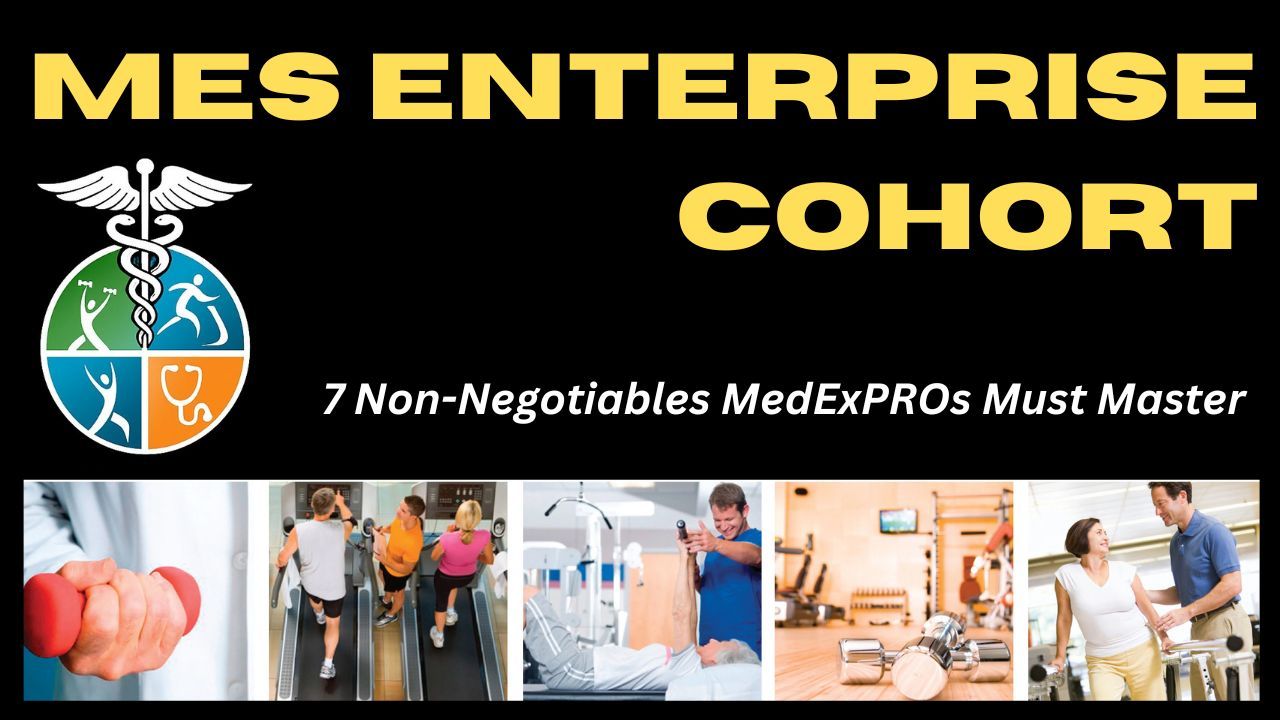
Most Medical Exercise Professionals don’t fail because they lack passion, intelligence, or certification.
They fail because they attempt to build a medical exercise practice without the professional systems, identity, and discipline required by the medical world.
If you want referrals from physical therapists, physicians, or surgeons—and if reimbursement is part of your long-term vision—there are seven non-negotiable shifts you must make. These are not optional. They are not advanced tactics. They are the price of admission.
The MES Enterprise Cohort exists to help MedExPROs implement these seven non-negotiables in 90 days—before another year slips by operating in uncertainty.
- Identity Comes Before Marketing
You cannot market what you cannot clearly define.
Referral-ready MedExPROs understand exactly who they are, where they fit in the continuum of care, and—just as importantly—what they do not do. This clarity eliminates scope confusion, builds trust, and removes the fear o...
10 Reasons MedExPROs Struggle to Build Sustainable Practices
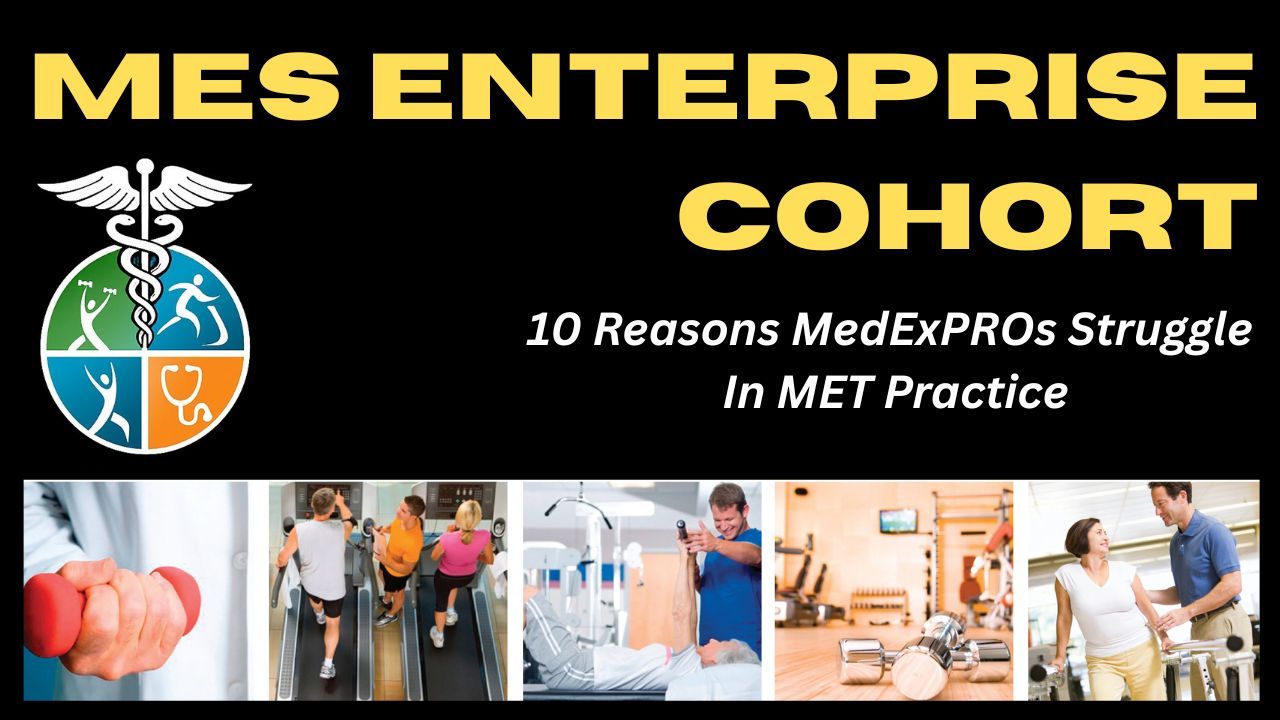
Why Skill Alone Is Never Enough?
Over the last 32 years, I’ve had the privilege of educating thousands of Medical Exercise Professionals around the world. I’ve seen exceptional clinicians. I’ve seen deeply committed professionals. I’ve seen individuals who truly change lives through exercise.
And yet—despite their knowledge, passion, and skill—many of those same professionals struggle to build sustainable, profitable medical exercise practices.
This isn’t because they don’t care.
It isn’t because they aren’t competent.
And it certainly isn’t because medical exercise “doesn’t work.”
It’s because medical exercise success is not a skills problem.
It’s a practice-development problem.
Over three decades, the same issues appear again and again. Different cities. Different countries. Different certifications. Same outcomes.
Below are the 10 most common reasons Medical Exercise Professionals struggle to build strong practices—and how those problems are directly addressed inside the MES E...
10 Reasons to Attend the Medical Exercise Specialist 2-Day Workshop
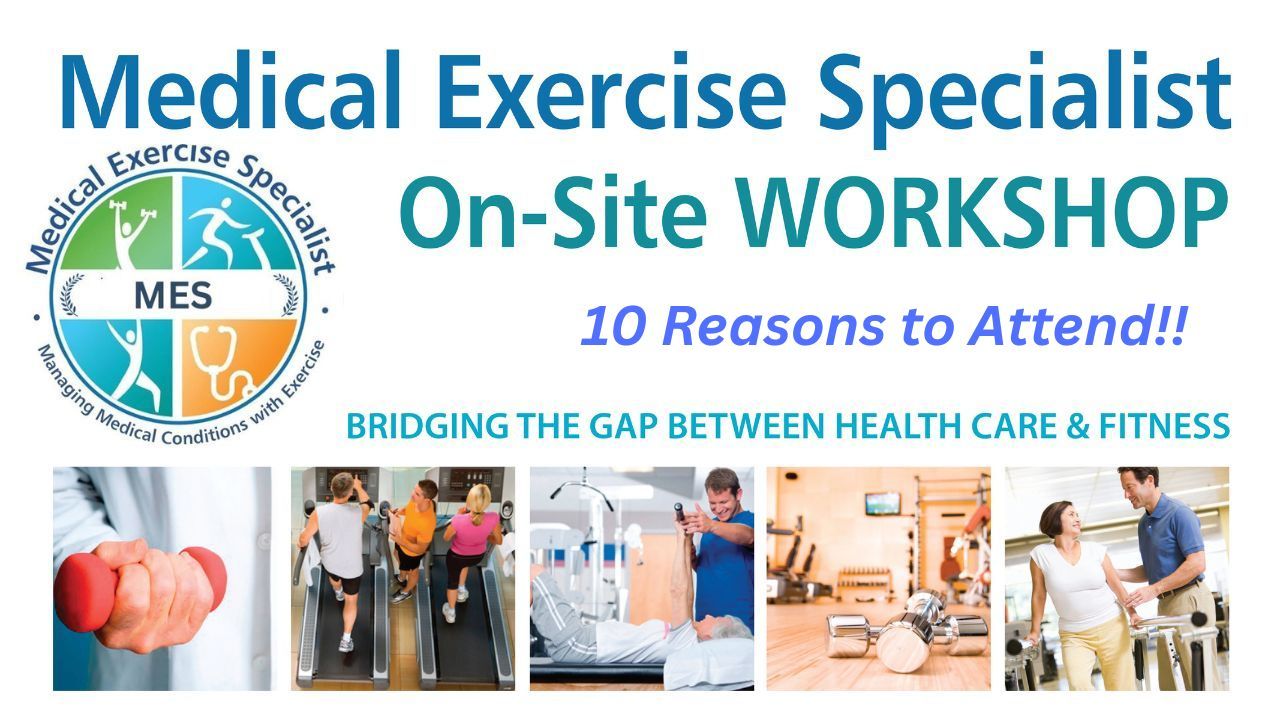
Are you a fitness professional or personal trainer looking to advance your career and “Bridge the Gap Between Healthcare and Fitness”? Continue reading to learn the top reasons to enroll in the Medical Exercise Specialist (MES) Workshop and Certification training. With the demand for medical exercise/post-rehab services growing due to an aging population and cutbacks in medical services, there has never been a better time to upgrade your skills.
Here are the 10 essential reasons to enroll in the MES training series today:
- Clearly Define Your Scope of Practice - The most important takeaway is to understand your specific role as a medical exercise professional. You will learn that you provide safe, effective exercise for "clients" after therapy has been completed. This allows you to confidently present your skills and services to clients and medical providers without concerns of misinterpretation. Clarity and the ability to articulate your role and services are key to growing a medi ...

